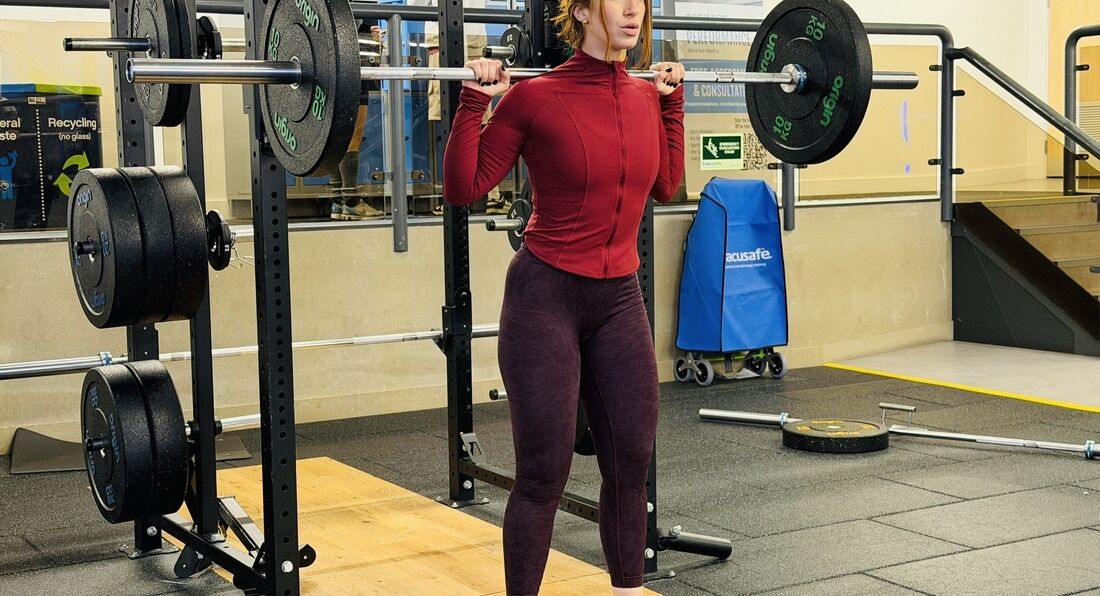Sunday, 18th January 2009
Keeping in line with the latest guidelines on nutrition for "athletes"
Cutting edge article on the new IAAF guidelines and how they affect and can help athletes in achieving their goals better
By LA Muscle on 18.01.2009 11:23 am
This is a VERY IMPORTANT reference article for athletes and anyone participating in any type of athletic activity such as running, cycling, rowing, rugby, boxing, martial arts, jogging and athletics. These recommendations are NOT for body builders.
The new IAAF guidance
The Medical and Anti-Doping Commission of the International Association of Athletics Federation (IAAF) produced its first consensus guidelines on Nutrition for Athletes in 1995 (1). Less than a year ago, in April 2007, the guidelines were updated to include specific advice for a range of sports and associated events (2) . A practical summary of  the guide was released 6 months ago at the 11th IAAF World Championships in Athletics (25 August to 2 September 2007) in Osaka (Japan). Here we report on the advice concerning Nutrition for Athletics and illustrate how LA Muscle products can help you meet the guidance during your period of normal training.
the guide was released 6 months ago at the 11th IAAF World Championships in Athletics (25 August to 2 September 2007) in Osaka (Japan). Here we report on the advice concerning Nutrition for Athletics and illustrate how LA Muscle products can help you meet the guidance during your period of normal training.
Nutrition, the guidance repeats all the way through, is vital for optimising health, growth and performance in all athletes. Well-chosen nutrition will help you train hard, reduce risk of illness and injury, and achieve performance goals, regardless of the diversity of each situation. As an athlete you should consume a wide variety of foods to meet your specific energy needs and to provide you with optimum amounts of carbohydrate, protein, fat, vitamins, minerals and other important food components.
Energy availability
Athletics consists of a range of events requiring varying inputs of technique, strength, power, speed and endurance. Not everyone's energy needs will be the same. But there is now a new concept in nutrition called 'energy availability'. Alongside training and other activities, 'energy availability' puts focus on making sure there is enough energy available for the body to function. What's important is to make sure the body has available at least 30 kcal (126 kJ) energy per kg lean body mass (body weight 'minus' body fat). This is what 'energy availability' is about and it can be used to work out what your total energy intake should be:
Energy availability = total energy intake - energy cost from training
Instead of leaving it to chance, you need to make sure that your energy intake will meet your body's requirements both for training and for your body's normal functions:
Total energy intake = energy availability (needed for body's normal functions) + energy cost from training (used up during training)
For example:
You might weigh 60 kg and your body fat might be 10% (6 kg) of your total weight.
Your lean body mass will be = 60 kg - 6kg = 54 kg
You know your energy cost from training to be = 1000 kcal/day
Your 'energy availability' for, say, 35 kcal/kg lean body mass will be = 35 x 54 = 1890 kcal
Your total energy intake must be at least = 1000 kcal + 1890 kcal = 2890 kcal
Therefore, you need to make sure you consume at least 2890 kcal per day.
Energy sources
 CARBOHYDRATES supply the muscles and brain with the fuel they need to meet the stress of training and competition and to optimise recovery of muscle glycogen stores between workouts. It is important to be aware of your specific carbohydrate needs; how much you should consume, and when. A single recommendation on dietary carbohydrate content is no longer promoted. The new guidance centres on the type and volume of training and the size of the athlete, as detailed below:
CARBOHYDRATES supply the muscles and brain with the fuel they need to meet the stress of training and competition and to optimise recovery of muscle glycogen stores between workouts. It is important to be aware of your specific carbohydrate needs; how much you should consume, and when. A single recommendation on dietary carbohydrate content is no longer promoted. The new guidance centres on the type and volume of training and the size of the athlete, as detailed below:
CARBOHYDRATE INTAKE
Immediate recovery (within 0-4 hours) after fuel-depleting exercise:
Recommendation:1 g per kg body weight per hour, consumed at frequent intervals
To achieve recovery for key sessions the guidance recommends athletes to take a suitable supply of snacks to the exercise venue.
Example: Athlete weighs 60 kg, requires 60 x 1 = 60 g carbohydrate immediately after exercise.
Take 1 LA Muscle Flapjack ™ (60 g carbohydrate)
Total carbohydrate intake = 60 g
Daily recovery from a moderate duration/low intensity training session:
Recommendation: 5-7 g per kg body weight per day. Start carbohydrate intake as soon as possible after first training session.
Example: Athlete weighs 60 kg, requires 60 x 6 = 360 g carbohydrate per day.
Take 1 LA Muscle Flapjack ™ (60 g carbohydrate) + 1 serving (2 scoops) LA Muscle Cobra™ (90 g carbohydrate) = 150 g
Also have other carbohydrate foods such as breakfast cereals, fruit, sandwiches, rice or noodles to = 210 g
Total carbohydrate intake = 360 g
Recovery from moderate to heavy endurance training or fuelling up for a distance event:
Recommendation: 7-10 g per kg body weight per day. Start carbohydrate intake as soon as possible after first training session.
Example: Athlete weighs 60 kg, requires 60 x 10 g = 600 g
Take 2 LA Muscle Flapjacks™ (2 x 60 g = 120 g carbohydrate) + 1 serving (2 scoops) of LA Muscle Platinum™ (37 g carbohydrate) + 2 scoops LA Muscle Maltomass™ (2 x 33.3 g = 67 g carbohydrate) = 225 g
Also have other carbohydrate foods such as breakfast cereals, fruit, sandwiches, rice or noodles to = 375 g
Total carbohydrate intake = 600 g
PROTEIN also plays an important role in exercise and recovery. Amino acids from proteins regulate essential chemical processes within the body that include building  new muscle as well as repairing old muscle tissue. The guidance suggests it is not just athletes involved in strength and power events (e.g. sprinters and throwers) that should be concerned with their protein intake. It's the athletes involves in endurance events (e.g. distance runners and walkers) who should specially focus on their protein intake. Endurance and resistance-trained athletes in heavy training may have an increased daily protein need of 1.2 - 1.7 g per kg body weight.
new muscle as well as repairing old muscle tissue. The guidance suggests it is not just athletes involved in strength and power events (e.g. sprinters and throwers) that should be concerned with their protein intake. It's the athletes involves in endurance events (e.g. distance runners and walkers) who should specially focus on their protein intake. Endurance and resistance-trained athletes in heavy training may have an increased daily protein need of 1.2 - 1.7 g per kg body weight.
The timing of protein intake is also an important factor. Athletes should consume protein both before and after a resistance workout to maximise benefit. In the case of resistance training, especially, there is evidence to link protein consumption before a session to net gains after the workout. Enhanced protein intake is also a desirable goal of the recovery phase after exercise both for endurance and resistance training. Generally, recovery eating requires an intake of 10 - 20 g of high quality protein in the hour following exercise.
PROTEIN INTAKE
Recommended total daily intake of protein for endurance athlete:
Recommendation: 1.2 - 1.7 g per kg body weight Athlete weighs 60 kg, requires 60 x 1.5 g = 90g
Example: Take 1 LA Whey Protein Bar (31 g protein) + 1 serving (5 scoops) Komplete™ (45g protein) = 76 g
Also have other protein foods such as meat, chicken, dairies to at least = 20g
Total protein intake = 90 g
OR
Take 1 LA Muscle Flapjack ™ (17 g protein) + 1 serving (2 scoops) Bio_Activator™ (48g protein) = 65 g
Also have other protein foods such as meat, chicken, dairies to at least = 25g
Total protein intake = 90 g
Recommended intake of protein for refuelling and rebuilding immediately after exercise
Recommendation: Around 10 - 20 g of high quality protein.
Example: To achieve recovery for key sessions the guidance recommends athletes to take a suitable supply of snacks to the exercise venue.
Take 1 LA Whey™ protein bar (31 g protein)
OR
Take 1 LA Muscle Flapjack ™ (17 g protein)
VITAMINS, MINERALS, AND ANTIOXIDANTS (also known as micronutrients), while present in nutrient-rich foods, can be inadequate in the diet of athletes who restrict their energy intake or have an unvaried diet. The micronutrients that are most likely to be consumed in inadequate amounts are iron and calcium.
Komplete™ contains iron and calcium as well as a range of other vitamins and minerals.
Bio_Activator™ contains calcium, potassium and sodium.
Multi_Protector contains most of the vitamins and minerals you need as well as extra unique ingredients such as Co Enzyme Q10.
Staying fit and healthy
Sound nutrition can help athletes stay fit, healthy and injury-free. The guidance IAAF considers energy and nutrient status to be the greatest influence on athletes'  immune health. For example, while a reduced carbohydrate level during exercise is associated with increases in stress hormones and suppression of the immune system, strategies that enhance carbohydrate availability, such as carbohydrate intake during and after exercise as detailed above, have been shown to reduce these negative effects.
immune health. For example, while a reduced carbohydrate level during exercise is associated with increases in stress hormones and suppression of the immune system, strategies that enhance carbohydrate availability, such as carbohydrate intake during and after exercise as detailed above, have been shown to reduce these negative effects.
Supplements and sports foods address the special nutritional needs of athletes and offer a simple and practical way to meet known nutritional goals. LA Muscle products are specially designed to help an athlete meet specific needs for energy and nutrients in situations where everyday foods are not practical to eat. The IAAF guidance acknowledges that sports foods and supplements can improve performance when they allow the athlete to achieve their sports nutrition goals.
References:
1. Journal of Sports Sciences, 1995, Volume 13, Special Issue.
2. Journal of Sports Sciences, 2007; Volume 25(S1)




























